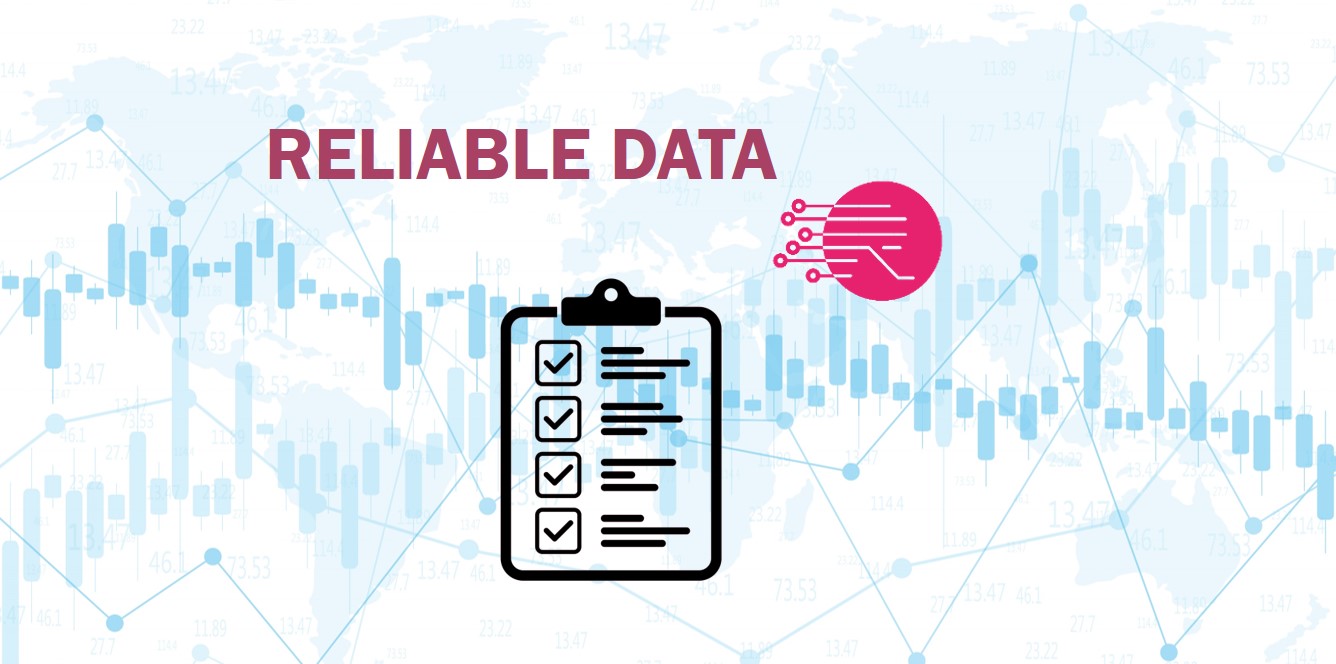Data is really nothing more than another word for information. It is one of the most valuable company assets and paramount for any organization aiming to maintain accuracy, consistency, and trustworthiness in its data assets.
Data integrity is the bedrock of data-driven decision-making, underpinning every transaction and analytic process. High-quality data can give your company the competitive advantage it needs to succeed in the market.
Poor data integrity can lead to erroneous conclusions and actions. These can have detrimental effects on the operational efficiency and reputation of your business.
This article delves into the essence of data integrity, its impact on various business facets, and how organizations can ensure data integrity through robust data management practices and platforms.
Accurate and complete data can benefit your company in several ways. Depending on your market niche, your business data can help you:
- Make informed business decisions
- Target your audience with personalized ads
- Aid in hiring and company resource management
- Improve your products and services
- Increase company-wide productivity
- Boost revenue
- Provide evidence for research findings
- Find a cure for a disease
- Help you prepare for natural disasters
There is so much more data can do. The better quality data a company has, the more successful it is likely to be. This is where data integrity becomes key.
Business leaders ask, "What is data integrity exactly, and why is having clean and relevant data so important for my business?" Let us deep-dive into this topic.
What Is Data Integrity?
Data integrity refers to the accuracy and consistency of data stored in a database or a data warehouse. Data with “integrity” is said to have a complete structure, i.e., all characteristics defining the data are correct.
The primary principles of data integrity include:
- Accuracy: Data must be recorded and maintained to reflect the truth precisely.
- Consistency: Data must remain consistent over time, regardless of the format or platform.
- Completeness: All necessary data should be recorded, and any missing data can lead to incorrect conclusions.
- Trustworthiness: Data must be reliable and should accurately represent the reality it is intended to depict.
Ensuring data integrity is not a one-time task but a continuous process that demands the deployment of robust data management and integration practices.
Why Is Data Integrity Important?
Your team needs constant access to quality data to manage business processes effectively. Data integrity practices are important as they guarantee and secure the searchability and traceability of your data to its original source – a single source of truth.
Data performance and stability also increase when you ensure data accuracy and protection. Compromised data is of no use for most companies. This includes big data.
Organizations collect more and more data, and most companies have set specific goals for their data. Data loss and corrupted data are common threats that can considerably damage your business, which is why data security should be a number one priority for any organization.
If you fail to secure your data through an integrity initiative, it could be compromised. In that case, a cumbersome and expensive internal audit trail could be necessary to trace errors and recover the data.

Data integrity can be compromised in many different ways. Data is mostly digital and transferred online in several places. This results in an increasing amount and varied types of data being collected.
For example, data should remain unaltered whenever it is transferred or replicated between updates. As a result, data integrity and data integration are closely related.
Data is not static; it is not stored once and for all in your systems. Many things can alter your data from the first day it is created in your system and throughout its lifecycle. It can also be transferred to other systems and updated multiple times.
Organizations typically use several data management systems, such as Enterprise Resource Planning (ERP), Customer Relationship Management (CRM), Supply Chain Management (SCM), etc. Human interactions, data transfers, software viruses, or faulty hardware can expose your data to external threats.
Data integrity should be at the top of your mind at every stage of your data lifecycle. From the design and implementation phase of your systems to protecting the stability and performance of your platforms.
Physical Data Integrity
Some people talk about the physical integrity of data. This refers to a series of processes to store and collect data in the most correct way, maintaining its accuracy and reliability.
It encompasses the mechanisms and protocols that ensure data remains unaltered from its original state during physical operations such as storage, retrieval, and transfer. This aspect of data integrity is crucial as it forms the basis upon which data can be trusted and utilized confidently.
The physical integrity of data is maintained through a combination of hardware, software, and network protocols that work together to prevent data loss, security breaches, corruption, or unauthorized alteration.
Logical Data Integrity
The logical integrity of data, on the other hand, checks whether data is correct and accurate in a specific context.
It ensures the data is logically correct and meaningful, adhering to predefined business rules and constraints. Logical integrity checks are carried out through various validation methods to verify that the data remains consistent and accurate in a particular context.
Unlike physical integrity, logical integrity delves into the semantic aspects of data and ensures that it is correct, relevant, and usable for its intended purposes.
Both physical and logical integrity are pivotal for maintaining a robust data integrity framework. By ensuring that data is both physically secure and logically accurate, organizations can trust the data they leverage for critical decision-making and operational processes.
Platforms like Rapidi play a crucial role in this regard, offering robust data integration solutions that uphold both the physical and logical integrity of your data. This guarantees a seamless and error-free data exchange across various systems and platforms.
Data Integrity Constraints
Data integrity constraints refer to the rules applied to maintain the quality of your data. For example, this can be domain integrity or entity integrity.
Data integrity constraints are pivotal in maintaining the quality and trustworthiness of data. These constraints enforce specific rules on data, ensuring it adheres to defined standards and business logic.
Domain-Level Data Integrity:
- Domain integrity ensures that all entries in a column are within a defined domain of possible values.
- It verifies that the data contained in a database adheres to defined data type, length, and format constraints. For example, a domain constraint might specify that a particular column can only contain numerical values or dates within a certain range.
Entity Integrity:
- Entity integrity ensures that each entity (or row) in a database is unique. This is typically enforced through unique identifiers known as primary keys.
- Entity integrity guarantees no duplicate rows in a table, thus maintaining the uniqueness and identifiability of records.
Other common data integrity constraints include:
- Referential Integrity: This constraint ensures that relationships between tables in a database remain consistent. It is maintained by ensuring any foreign key values have corresponding primary key values in the related table.
- User-Defined Integrity: This involves setting up custom rules specific to an organization's business logic and operational requirements. User-defined integrity constraints cater to specific needs that are not covered by other types of constraints.
Employing these data integrity constraints, organizations can greatly minimize the risk of data anomalies and ensure that their data remains accurate, consistent, and reliable over time.
There are many ways to maintain data integrity and the completeness of data. We will explore these options after looking into the importance of data integrity for your organization.

How Can You Secure Data Integrity?
What can you do to ensure data integrity? You can set up standard rules and procedures at your system's design stage, such as error checking and validation routines. These have to be adhered to at every step in every process.
Setting up a solid database structure and following good database management practices are also two basic ways to secure your data.
Let us look at some of the other common methods to maintain accurate business intelligence.
Crucial Data Integrity Processes To Follow:
- Data Cleaning And Maintenance: Set up a regular routine to ensure your data is error-free.
- Data Entry Training: Train your users to enter and maintain data and delegate accountability for data quality to them. Your collection method should be clear and accessible, making it as easy as possible for users to provide your raw material: their data.
- Data Validation Rules: No matter how careful you are, human errors are almost unavoidable. Data input validation rules will control and restrict the values that users can enter into the system. This ensures only acceptable values may be entered and processed.
- Automated Error Checking: Utilize automated error-checking tools to identify and correct inconsistencies and errors in data. Automation can significantly reduce the likelihood of human error and ensure a higher level of data accuracy.
- Audit Trails: Create and maintain audit trails that record who accessed and modified the data, along with the time and nature of the modifications. Audit trails are crucial for backtracking and identifying the source of any data integrity issues.
- Data Encryption And Security Measures: Employ data encryption and other security measures to protect data from unauthorized access and alterations. You can also create different levels of access depending on different roles. It prevents your data from landing in the wrong hands and keeps your business GDPR-compliant.
- Robust Data Integration And Management Platforms: Platforms like Rapidi can provide robust data integration solutions, ensuring seamless and error-free data exchange across various systems and platforms. Utilizing such platforms can significantly enhance the accuracy and consistency of your data.
- Regular Data Integrity Audits: Conduct regular data integrity audits to identify areas of improvement and ensure adherence to the established data integrity standards and procedures.
- Data Backup And Recovery Procedures: Establish robust data backup and recovery procedures to protect data integrity in case of system failures or other unforeseen events.
The Benefits And Challenges Of Data Integrity
Understanding the benefits and challenges of data integrity is crucial for any organization. On one hand, good data integrity can boost trust, compliance, and decision-making.
On the other hand, challenges like human errors and cyber threats can hinder the process, making it a complex yet vital area to navigate for achieving operational excellence.
Benefits Of Data Integrity
- Regulatory Compliance: Adhering to data integrity standards helps organizations comply with legal and regulatory requirements, which is crucial for avoiding fines and legal issues.
- Improved Customer Trust And Satisfaction: When customers see that an organization handles data accurately and reliably, their trust and satisfaction levels will likely increase.
- Enhanced Market Reputation: Upholding high data integrity standards can enhance an organization's reputation in the market, making it a more attractive choice to stakeholders.
- Better Resource Allocation: With accurate and reliable data, organizations can make better-informed decisions regarding resource allocation, thereby optimizing operational efficiency.
- Data Availability: Maintaining data integrity also involves ensuring data is available when needed, facilitating smoother operations and timely decision-making.
Challenges In Maintaining Data Integrity
- Human Error: Despite training and best practices, human error remains a significant challenge in maintaining data integrity.
- Cyber Threats: The risk of cyber-attacks and data breaches is a constant threat to data integrity.
- Technological Limitations: Technology can sometimes fall short in preventing data corruption or loss, especially in the face of hardware failures or software bugs.
- Complex Data Ecosystems: As organizations adopt more complex data ecosystems with numerous integrated systems, maintaining data integrity across all platforms becomes increasingly challenging.
- Cost And Resource Constraints: Implementing robust data integrity measures requires a significant investment in terms of time, effort, and resources, which can be a hurdle for some organizations.
- Lack Of Standardization: Variance in data integrity standards and practices across different departments or organizations can also pose a challenge.
Adopting a comprehensive and proactive approach is essential in confronting these challenges and reaping the benefits of data integrity. Utilizing Rapidi's data integration platform can significantly alleviate these challenges by providing automated validation, seamless data integration, and robust security measures.
Next Steps To Ensure The Integrity Of Your Data
Is maintaining data integrity at the top of your mind? What are the actions and rules that you have put in place to secure data integrity in your organization?
Have you ever considered protecting and securing the data integrity of your company? Healthy data could save costs and spare you the trouble of dealing with compromised data. It is an investment in the future sustainability and success of your organization.
If you haven’t already, it is time to evaluate and fortify the data integrity measures within your organization. Consider the following steps:
- Assessment: Conduct a thorough assessment of your current data management practices to identify any gaps or areas of improvement.
- Training: Ensure that your team is well-trained on data entry procedures and the importance of data accuracy.
- Technology Implementation: Invest in robust data integration and management platforms like Rapidi to automate and streamline data validation and integration processes.
- Regular Auditing: Establish a routine of regular data integrity audits to catch any inconsistencies and rectify them before they escalate.
- Policy Development: Develop and enforce stringent data management policies that align with regulatory requirements and industry best practices.
- Cybersecurity Measures: Implement strong cybersecurity measures to protect against data breaches and unauthorized data alterations.
- Continuous Improvement: Adopt a culture of continuous improvement, learning from any data integrity issues and refining your processes accordingly.
Healthy data not only saves costs but also fortifies your organization's foundation, ensuring you are well-equipped to make informed decisions, comply with regulatory mandates, and maintain the trust of your customers and partners.
Frequently Asked Questions















